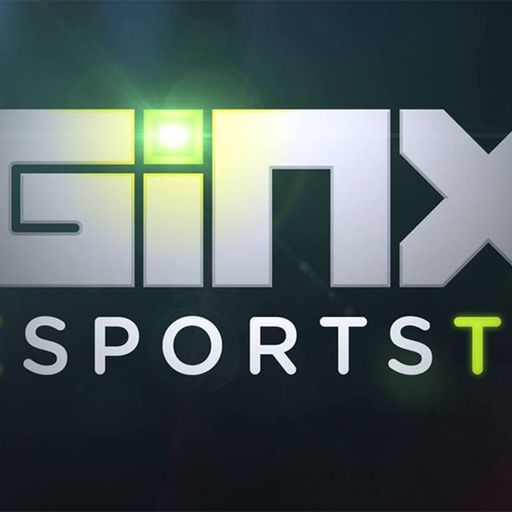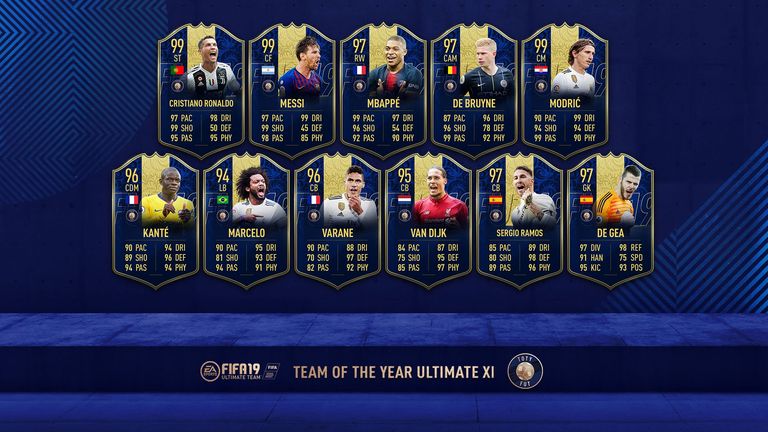How FIFA esports can be improved
Thursday 31 January 2019 11:13, UK
We're all FIFA players at heart. We've all been there, furious at a poorly-timed Ultimate Team loss or simply in agony after being thrashed by the mate we were so sure we would beat.
But FIFA has grown to be much bigger than simply a party game now. It's an esport worth millions of pounds, with new leagues, tournaments and companies getting involved on what feels like a daily basis.
Over the last couple of years, FIFA esports has seen significant growth in terms of viewership, player base and prestige amongst the esports community. It's becoming a more viable career for aspiring young professionals (and look no further than Donovan 'DhTekKz' Hunt and DullenMike for what young players can do), but with this growth comes a certain amount of eligibility for criticism - something FIFA and EA are no strangers to.
With that said, much of the criticism is fair and there are several ways FIFA can be improved to gain the approval of the esports elite and become a more well-rounded and fair competitive title.
Minimise pay-to-win elements
It is perhaps the most common complaint EA faces when it comes to FIFA Ultimate Team - it's incredibly difficult to get the strongest available team, particularly early on in the game's life-cycle, without sinking some cash into the game. Many players, especially those competing at any level, feel it is necessary to put their own money in in the hope of having some luck with pack openings, either by packing the stronger meta players or by being able to sell and trade enough to afford the player they desire using in-game currency.
The flaws in this kind of system are evident - for example, if two players of equal skill face off, but their teams are dramatically different because one does not have the money to invest in opening packs, does this fairly judge the better player?
If you look at the top esport titles, players have all the tools already at their disposal, such as the availability of all champions in League of Legends. This allows players and teams to make decisions based on that of their opponent. Many FIFA players find they instead have to rely on luck and money to maximise their chances at winning.
This may contribute to why many believe FIFA to be too 'random' to be a truly competitive title. Not giving players the tools to complete the job to the best of their ability from the off definitely damages the competitive integrity of the game.
Platform exclusivity
It's understandable why FIFA at the top level is played on both PlayStation and Xbox and wanting to give everyone the opportunity to compete. But spreading the professional player-base like this simply isn't feasible if FIFA wants to grow.
Console esports are already limited by nature - Call of Duty is the most popular by a long way, and it is played exclusively on PS4. Other console esports include Halo and Gears of War, both of which are exclusive to Xbox. Simply put, you're not going to see a PS4 branch and an Xbox branch of players at a Call of Duty tournament, and it comes back to the previous point: putting competitors on a level playing field.
Typically, competitors play against their own console until the grand final, which is played over two legs, each leg taking place on a different console ("home" and "away").
Though this may seem the fair option, putting competitors on a platform that they're less familiar with, one that they are not used to playing with everyday at home. To many, this may seem a trivial complaint, but players should be given the opportunity to play in complete comfort in high-stakes matches - picking up an Xbox controller for the first time since the last event is not the most comfort-inducing scenario.
Bypass the yearly releases
Perhaps the least likely to happen out of these suggestions, any esport title that operates on a new game each year is missing out on some serious opportunity.
If players have, say, five years to learn the most intimate intricacies of a game, rather than playing for a year then switching to an entirely new system and state of play, you get to witness some incredible storylines and the game played in a way that may once upon a time have seemed impossible.
Look at Valve's Counter-Strike: Global Offensive. The game has been around since 2012 and is perhaps the most popular esport in the world, in terms of viewership and fan participation. In that time, fans have been treated to some incredible narrative arcs: Fnatic's early dominance, the rise of Astralis which seems to never be ending. Teams are playing a game that they haven't put down in nearly seven years and have learned to play it in the most efficient way. Players are proving that they are unequivocally the best at CS:GO - I'm not sure you could ever say the same about FIFA whilst they play a different game each year.
The uncertainty in a yearly release also means tournament organisers can't predict the state of the game and invite the best players to their event, whilst players can't feel completely confident in career longevity knowing that their skill may not transfer so well between games.
Increase player depth and strategy
Similar to the last point, the most well-renowned esport titles are so because they offer a tactical element of play that casual players could never dream of replicating. The aforementioned intricacies of the game are what leave players at home dreaming of one day being able to play like that.
However, one common complaint of spectators is that there is little no variation between tournaments. You see the same combination of Icons and Team of the Year players in every team, similar play styles and formations, much like watching the same thing over and over again.
This isn't necessarily an issue of the pro players - they can only use what is the best option available to them. But it would be great to see what is played in FIFA better reflect the beautiful game as we've watched it all these years.
For example, a team with Virgil van Dijk and Rio Ferdinand as the centre back pairing means you'll be hard to break through the middle - maybe a quick player that can outpace them and make the runs should be the way to counter them?
Instead, due to AI and how defending works in FIFA, you'll often find that it's not that simple to just set up a player to draw out the centre backs, or to prey on weaknesses that you would often find in real life.
This is understandably a monumental task, especially when the game is so reliant on AI, but it would improve the esport tenfold to be able to create in-depth strategy against certain players and teams.
For the latest from the world of esports, go to GINX Esports TV.





